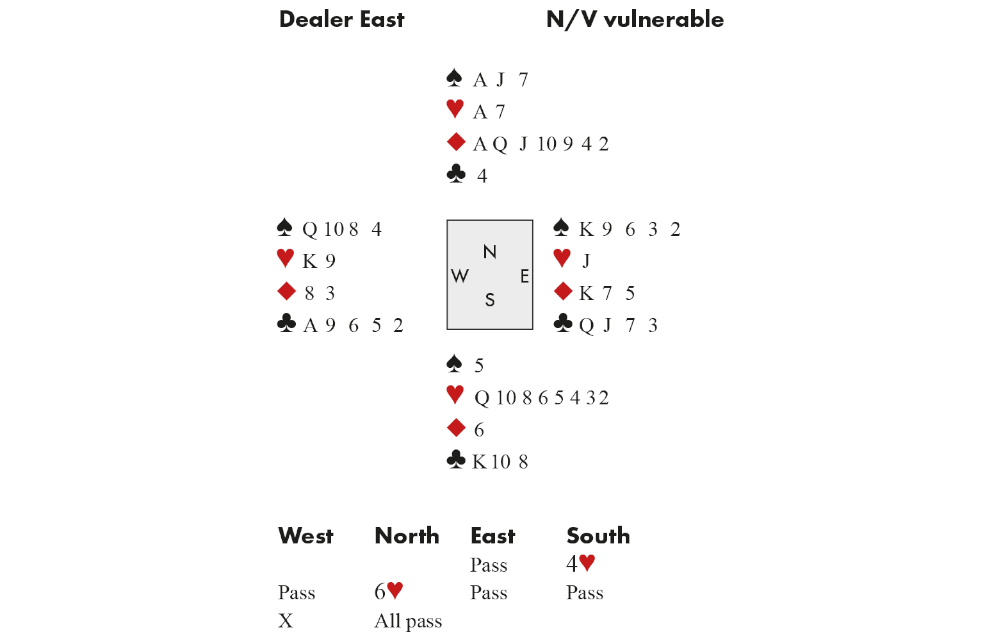One of the greatest areas of misunderstanding is doubling. Is it penalty? Is it take out? Is it negative? Recently I heard about a pair who were playing exclusion blackwood (or at least one of them was) and ended up playing 5♣ (undoubled) in a 0-0 fit. True story. You need trumps to double a game (unless they have obviously screwed up) but it will usually cost a trick. Doubling a slam is a different story.
North expected a bit more from a second-in-hand vulnerable 4♥ opening and jumped to slam. West figured she probably had a trump trick in addition to her Ace, so gave it ‘the message’, but this was seriously unsound, as we shall see.
West led her ♣A and, disappointed to find the ♥A in dummy, tried another Club, hoping declarer would have to ruff. South won in hand and – because of West’s double – tried the ♥Q from hand. West ducked and the Jack dropping was a sight for sore eyes.
The remaining trump was drawn, after which South played ♠A and ruffed a Spade, East wasting his King. Six more trumps followed and – with West obviously clinging on to the ♠Q – there was no guessing in the end; East got thoroughly squeezed in the minors and the slam made.
Was West a bit unlucky? Perhaps, but let’s look at the maths, to understand what she’s risking. The other table made 650 in 4♥. If 6♥ had gone down, she would have increased her side’s profit by 1 IMP, (14 instead of 13). When she led declarer to the right path, it cost 27 (-14 instead of +13). To risk 27 IMPs in order to pick up 1 should tell us everything we need to know about speculative doubles.






Comments